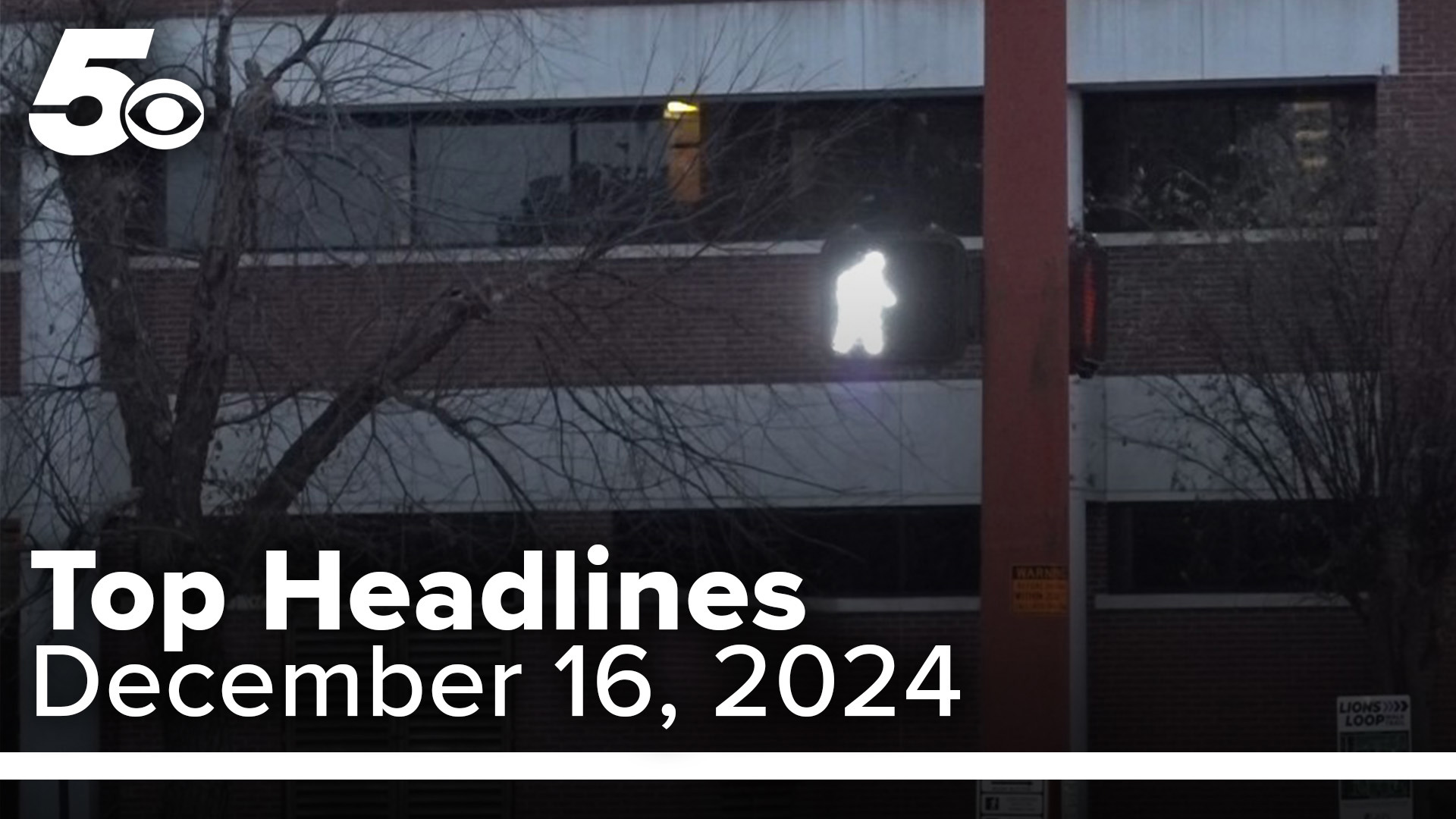LITTLE ROCK, Ark. — A new report details how the Arkansas state government can potentially see $300 million in cost savings over the next six years.
Arkansas Forward, an initiative from Gov. Sarah Huckabee Sanders, is looking to "save money and improve services" for people in the state. This report comes after the state gave McKinsey & Co. a $5.5 million contract in early 2024 to provide "more efficient and effective services" to Arkansans.
Sanders said the report was a "sweeping, comprehensive look at government efficiency" and suggested over 300 initiatives across 15 departments. Her office estimates it can "return $300 million in cost-savings and cost-avoidance to the people of Arkansas over the next six years."
“Across all state agencies, this team discovered potential ways to save taxpayer money and improve services," Sanders said. "Many of Arkansas Forward initiatives are already underway and I look forward to this project continuing and reducing the burden of government on our taxpayers.”
The focus was on five areas: information technology, the procurement process, state vehicles, state employees, and state-owned buildings.
“We are excited to deliver to her the Arkansas Forward progress report, which reflects months of hard work from all executive agencies and functional groups. We will continue to evaluate opportunities for improvement and work to implement these findings,” said Secretary of Transformation and Shared Services Leslie Fisken.
To read the full report, click here.
Procurement process
The plan calls for a "redesign" of the state government's procurement process and an "imperative for systematic change."
Arkansas could save upwards of $230 million by making changes to this process by what officials say is getting the "'right stuff', at the 'right (total) price', through the 'right processes.'"
The state's procurement process made headlines over the last two years after the governor's office purchased a $19,000 lectern. An audit couldn't determine if the cost was appropriate due to vendors not responding to officials and a "lack of formal purchasing documents."
Among the suggestions to improve the procurement process includes:
- Making product categories consistent across departments
- Consolidating contracts for "commodities and services"
- Enhancing the negotiation process for "major solicitations" for better rates and terms
- An e-procurement system and training for procurement staff
Forty initiatives have been proposed to manage "demand for vendors and support" as well as using analytics to refine pricing and optimizing any processes for "speed and value."
The report focuses on PO and P-card spending from Arkansas's executive department which accounts for $1.7 billion in expenses. Those purchases account for around 7% of the $22.3B in expenses.
"Overall, Arkansas’s current procurement organization reflects a decentralized structure and compliance-oriented culture, with fragmented approaches to category and contract management, governance, and internal capability building," the report noted.
The report also notes that Generative AI (GenAI) could "capture value" in the state's procurement processes. GenAI could be used to increase speed and efficiency among multiple systems and tools. One solution to use GenAI includes analyzing large volumes of contracts to compare terms to benchmarks and provide recommendations on renegotiations.
Information technology
In the report, officials say that improving IT could save around $65 to $130 million annually that could help modernize state systems as well as help Arkansans with "customer experience" and reduce any cybersecurity risks.
Arkansas spends anywhere between $680 to $700 million annually for IT services with around $6 million on cybersecurity. The report notes that similar states to Arkansas spend around $60 million cybersecurity and nearly $170 million more on applications than other states.
Suggestions to save money include:
- Consolidating or retiring apps and making less critical or duplicate projects low priority
- App modernization to "reduce legacy tech risks"
- Improving IT program governance and management
- Negotiating better prices from vendors through a new consolidated procurement process
- Enhancing cybersecurity and analytics capabilities
State vehicles
The state currently owns and operates 3,980 vehicles across all departments, which costs around $21 million per year.
Leaders within the fleet department noted that some issues are that over 600 vehicles were rarely used in 2023, maintenance and refueling is done "as-needed" without comparing costs, and the data "ecosystem is fractured."
The report suggests reducing the fleet size to under 900 vehicles and reducing the age from nine to four years for vehicles owned by the state. To reduce the amount of vehicles, it is suggested the state sell off assets, implement vehicle sharing, and "realigning trips to the lowest-cost transportation option."
"Care will be taken to ensure that there are sufficient spare vehicles for when vehicles break down, when employees do not have a personal vehicle (or have a vehicle that does not fit the needs of the trip), or when trips have specific requirements beyond just travel," the report stated.
Changes to the fleet system could reducing spending by $3 to $5 million annually, according to the report.
State employees
The report notes that state is beginning to see a "retirement wave" which could lead to knowledge and experience loss. The state is also seeing challenges when it comes to recruiting and retaining talent within the state government.
Also highlighted was that the state's performance evaluation process is seen as "unfair" and the feeling is that it "favors higher graded leaders over frontline staff."
"In sum, the state government’s current approach to performance and pay does not deliver its intended results," the report noted. "A systematic change is needed."
A new system suggested by the report should include the following:
- Compensation linked to market dynamics and reinforced by bonuses as well as performance driven
- Streamlining positions, skill development, and the career path
- A simplified semi-annual performance evaluation
Changes to the bonus structure would include one-time and "spot" bonuses. One-time bonuses would typically go to a department's top performers or could be capped at a certain price "to favor more frontline and mid-level staff versus senior executives." A spot bonus would be to reward someone for exceptional work for specific projects.
Government buildings
When it comes to buildings owned by the state, the report highlighted that "many buildings" are "suboptimal" when it comes to employee experience and could hinder retention of current and future employees.
An analysis showed that the state could save around $15 to $25 million by doing the following:
- Increasing occupancy in Little Rock offices, selling owned properties, or exiting leases
- Consolidating offices not in Little Rock
- Selling or repurposing "underutilized" land
- Centralizing certain facilities and operations
By consolidating offices in Little Rock, the state could save $10 to $20 million annually and $3 to $6 million annually by consolidating offices not in the capital city.
The report also proposes centralizing how Freedom of Information Act requests are processed, consolidating boards and commissions, restructuring Medicaid operations and streamlining eligibility and enrollment for maternity care.



